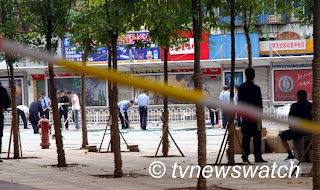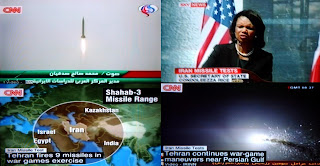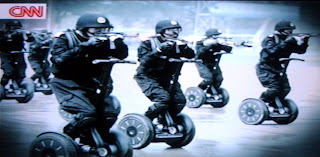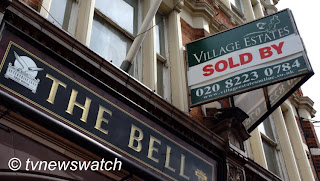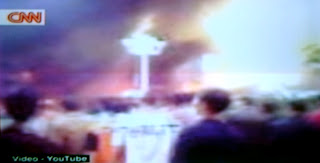
Anti-aircraft missiles protecting Olympic sites
Beijing has attempted to reassure journalists that they will have ‘freedom to report’ during the Olympic games. With less than one month to go until the games senior Chinese leader Li Changchun told journalists "If you are dissatisfied, you can file your complaint directly to Liu Qi, president of Beijing Organizing Committee for the Games of XXIX Olympiad". Many have complained they have faced problems with authorities in the lead up to the games. Some have been prevented from filming and others have complained of issues of over where they may drive and park satellite vehicles. Many freelance journalists and photographers have been refused visas, and even some large organisations have suffered problems acquiring the correct accreditation. For those who have made it to China many will have access to the Beijing International Media Center (BIMC), which opened on Tuesday to serve more than 5,000 non-accredited reporters during the Games [
Xinhua].
The technology involved in bringing the Olympics to millions of viewers has exceeded anything attempted before. With more than 4,000 hours of online content alone there are also issues of digital rights. It is something that authorities want to control and have said they will come down heavily on copyright breaches. And it is a product they are likely to make a lot of money from with broadcasting rights bringing in billions of dollars [
CNN].
Protection doesn’t just come in the form of the ‘copyright police’. Outside the Olympic Sports Centre Stadium ground to air missile installations have been placed to guard the venues. Behind a two metre high fence, two Hongqi 7 missile launchers have been installed. Along side sits other military hardware and vehicles hidden under camouflage netting. And behind a notice reading "Military Administrative District No Admittance" a dozen or so soldiers can be seen guarding the military emplacement [
CNN].
The fears expressed by the authorities is that terrorists may attempt to target the games. According to Xinhua several terror cells have been broken up, though details have been sketchy. The state news agency said that five terrorist groups in a mainly Muslim autonomous region had been broken up. Chen Zhuangwei, head of the Public Security Bureau of Urumqi, said 82 suspected terrorists had been arrested over 6 months in the mainly Muslim autonomous region of the Xinjiang Uighur Autonomous Region on suspicion of plotting to attack the Olympic Games. But both Human Rights Watch and Amnesty International have raised concerns about the crackdown saying that the authorities were using the threat as an excuse to stop dissent amongst ethnic groups. Authorities have also been criticised in their rounding up of known Falun Gong members and activists. But Chinese authorities are adamant in their claim that the terror threat is real and tangible. Last year Aji Mai Mai Ti, leader of the East Turkestan Islamic Movement Organization, a terrorist group based outside China, is alleged to have arrived in the Xinjiang province "to accelerate the preparation on terrorism activities" targeting the Beijing Games. The terrorist leader planned to target hotels in Beijing and Shanghai that were frequented by foreigners, as well as government buildings and military bases, according to a statement from the Ministry of Public Security [
CNN].
In the most recent counter-terrorist operation five ethnic Uighur men were shot and killed in Xinjiang province. The men were part of a group plotting a "holy war", according to Xinhua news. They were part of a group of 15, all of whom were armed with knives. According to the state news agency the eight men in custody had confessed to planning "terrorist" attacks against China's majority Han population [
BBC /
al Jazeera].
In April a number of other terror plots were broken up by authorities in the Xinjiang province. According to Wu Heping, a Ministry of Public Security spokesman, "The violent terrorist group plotted to kidnap foreign journalists, tourists and athletes during the Beijing Olympics" [
BBC].
Back in Beijing and ordinary Beijingers are complaining their life has become difficult with recent security measures and restrictions. Some migrant workers have been told to leave the capital according to the
BBC.
But it is the millions of motorists who have the biggest gripe. For many the car provides the only practical way of making the journey to work. But since measures were implemented to help cut pollution many have complained at the difficulty in getting to work. Lou Ning told the BBC that his 40 km journey provided few public transport links and he would have to pay 100 Yuan (£7.40) for a taxi ride. But he was generally pragmatic. "I have to drive a long way to work so the ban is inconvenient, but it's for my country, for the Olympic Games," said Mr Lou. There is increased inconvenience for anyone travelling around the city however. There are security checks on the subway, at airports and on the roads. A security cordon has even been set up on roads around Beijing at which passengers and their luggage are checked.



